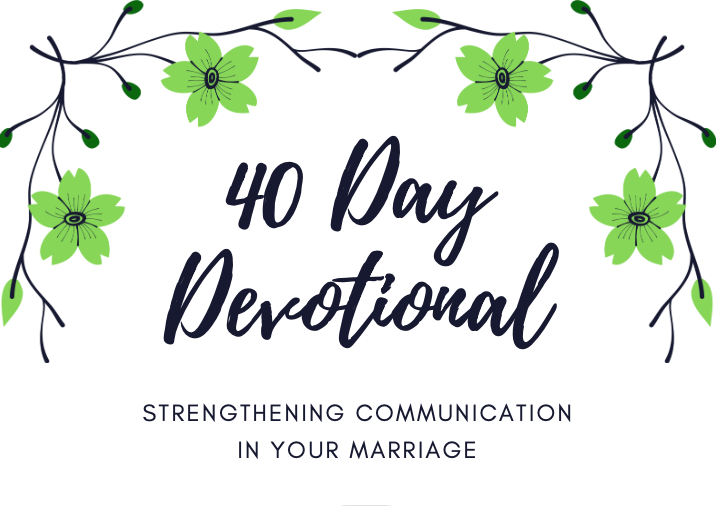What are we talking about today?
Ah, communication. Such a simple word for such a complicated part of life. At least, a potentially complicated part of life.
As a counselor, I spent a LOT of time helping couples strengthen or improve their communication patterns. There is a lot that could be said about communication in marriage!
Today, we’re looking at 4 big pieces of the puzzle. Four big reasons why couples struggle to communicate well… and, of course, some practical tips for what to do about each problem.
If communication is great in your marriage, that’s awesome. Listen in for encouragement and tips! If communication is a struggle in your marriage, you’re not alone. Dive in with me to better understand what’s going on and what you can do about it.
Ready? Let’s dive in, friend.
Listen to Episode 65:
[This post may contain affiliate links. If a purchase is made, I may receive a small commission at no extra charge to you.]
Snag your resources here!
If today’s topic is meaningful to you, you’ll also want to check out these earlier podcast episodes that connect with this same topic:
- Episode 16 // This simple change in your communication will improve your marriage, your parenting… actually, every relationship you have!
- Episode 25 // Improve your communication skills with these 5 helpful tips to become a great listener
- Episode 40 // Your words are powerful. But are you using them to help or hurt your loved ones? In marriage, parenting, friendships… your words matter.
- Episode 50 // Marriage & Motherhood… why it’s so hard, why it matters so much, and my #1 tip for doing it all well.
Let me also offer some helpful resources as we dive into marital communication:

Strengthen communication in your marriage
Dive deep into the Bible to apply God’s wisdom and care to communication in your marriage. Get daily Bible readings, prayer prompts, thoughtful reflection questions and daily conversation starters. (Plus, it’s all written by a Christian marriage therapist!)
And of course, don’t forget to grab your FREE 10-point Conflict Resolution Checklist!

[This post may contain affiliate links. If a purchase is made, I may receive a small commission at no extra charge to you.]
Today's Episode Highlights
Communication can be tough – especially in marriage. We’re with each other every day, seeing each other at our best and worst, when we have energy and when we’re totally exhausted. Can we really connect and communicate well on a regular basis?
Yes!
But, it does take work. Here are 4 things that often get in the way of good communication… and practical steps to take for changing each one.
Making negative assumptions about your spouse
When we start making negative assumptions, communication will not go well.
Typically, this means we start assuming the worst of our spouse. When we start jumping to conclusions about why they are doing something, and we assign a negative or blaming reason to them (regardless of evidence), we will not communicate positively.
Here’s an example. Say that your husband is late coming home from work and he hasn’t called. Is it because he got stuck in a meeting? Maybe he was helping a little old lady get her groceries in her car. Did he go for an impromptu beer with the guys and didn’t care enough to call?
It COULD be any of those. What does your brain jump to, when you’re frustrated and the kids are hungry and he’s not answering his phone?
What do you think your conversation will be like when he does get home? After you put the kids to bed?
If you find yourself making negative assumptions about your spouse, here are some practical tips for changing that pattern (and improving your communication!)
What to do about it: Recognize your thought patterns and challenge them. In the moment, ask yourself the question: “Do I have evidence that is true?” And if not, tell yourself three possible other conclusions that are equally possible but more positive or at least neutral.
Getting stuck in black-and-white thinking
Even if it’s just inside our own head, when we start using words like “always” or “never”… our communication is in trouble.
This is especially true when we begin to apply this type of thinking to our spouse’s character and not just his current actions. This points us back to 1 Corinthians 13… basically, we’re keeping a record of wrongs in our head.
Here’s an example. Have you ever asked your husband to take care of a household chore, he says sure of course no problem, and then three weeks later it hasn’t been done?
In the future, when this happens again (maybe it’s the second time, maybe it’s the fiftieth time)… do you start to think or say “you never help me out”? Or maybe, “you always say you will but you never do”?
That conversation is only going to spark his defensiveness, and let your anger shine through. It is unlikely to be productive, and certainly not likely to be encouraging or bonding for you.
If you find yourself using black-and-white thinking about your spouse, here are some practical tips for changing that pattern (and improving your communication!)
Again, recognizing and challenging that unhelpful thought pattern will help. But also, work on forgiveness. When you’re annoyed by something little, plan out how and when you’ll talk to him about it, and have the awkward conversation. Tell him how you felt and what you struggled with. Plan for it, so you don’t yell or cry or get upset – which will just escalate the conversation.
Playing the blame game
The blame game is human nature at its most basic – Adam and Eve jumped right into it while they were still in the Garden of Eden!
When we start blaming our husband for things that go wrong, our marriage is in trouble. But this also extends to blaming him for things that are genuinely his fault. Focusing on blame, or the negative things someone else has done, does not improve communication.
Here’s an example. Let’s return to the uncompleted chores! Yes, you know that you asked him to complete the chore. Yes, he agreed. And today, a few weeks later, it still has not been completed.
It is valid to address this in a conversation. But if that conversation focuses on what he failed to do or his lack of follow through or other “blame-focused” accusations, the conversation will not go well. We could instead focus on trying to understand what happened or asking for feedback on how we might get more on the same page about chores.
If you find yourself playing the blame game, here are some practical tips for changing that (and improving your communication!)
Acknowledge your own role in the situation first. Focus on your emotions or reactions rather than what he did or didn’t do. Use “I statements” so you are saying something like “I felt really let down when you said you’d fix the bathroom sink and then it didn’t happen all month.” instead of placing blame: “You really let me down when you said you’d fix the bathroom sink and then you didn’t.”
Expecting your husband to be a mind-reader
Of course, no one logically expects their husband to read their mind. But so often, we act like he should already know what we’re thinking or like he should agree with our emotions, our perspective, or our desires… even if we haven’t specifically told him what we want.
Here are a few examples. Has your husband ever asked “are you okay?” and you know that you’re upset, but you say no. You say you’re fine. And then you spend the afternoon frustrated that he’s treating you like you’re actually fine.
How many times have you just expected him to know that you really want a date night, and you’ve hinted and winked and insinuated, and he’s just not doing it? And then you’re disappointed that date nights aren’t happening?
If you find yourself expecting your husband to read your mind, here are some practical tips for changing that pattern (and improving your communication!)
Be more upfront with your spouse, and try to be more vulnerable. It may feel awkward to ask for something you want, but it greatly increases the odds of the other person being able to be successful. Ask for what you want, explain things so that someone not inside your own brain will understand and especially, practice sharing your emotional experience with your husband. He may not always respond well… you can tell him what response you want.
- One specific example that I see happen often in the counseling room… It’s common for women to want to talk to their husband about a problem or vent about their day, without wanting the problem “solved.” They want validation and emotional connection. Men, however, naturally want to solve problems. Without upfront communication, this can be very frustrating in a conversation! When we can say upfront “I’m not looking for you to solve this problem, I just want you to hear how hard my day was,” you set the conversation up for success… and your husband!
2 resources that will help
- Grab our 40 Day Devotional on Communication in Marriage.
- Get the FREE 10-point conflict resolution checklist.
Friday Faith Follow-up
In today’s bonus follow-up episode, I’m sharing the details of my FAVORITE couples therapy communication exercise. It will definitely be helpful for you and your husband (and probably with other people too) even if your communication is generally pretty good. It will help each of you to feel heard, valued, and understood. Take a listen and try it out!
Hey, before you go!
- Join us in our free, private Facebook Group! This community is all about engaging, encouraging, and equipping each other as sisters in Christ.
- Make sure you Follow or Subscribe to the podcast, so you don’t miss any future episodes.
- Share this episode with a friend who needs to hear it: you can text or email the link to her.
- And hey, I’d love to connect with you on Instagram! @loveyourpeoplewell
Don't miss future episodes!
Follow the show on:
A reminder of the Disclaimers & Disclosures Policy: I am an affiliate with many of the resources I recommend, which means I may receive a small commission if you make a purchase through my provided links. I never recommend products I don’t love! Also, I am a licensed therapist but this podcast is not therapy. It is not professional or personal advice to your specific situation. Get info about professional counseling here.




